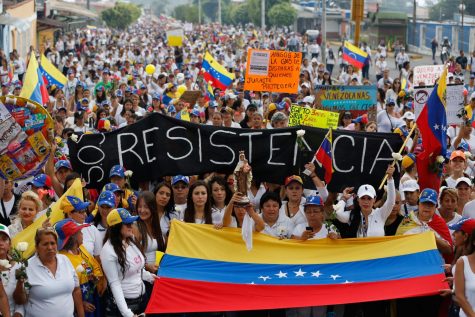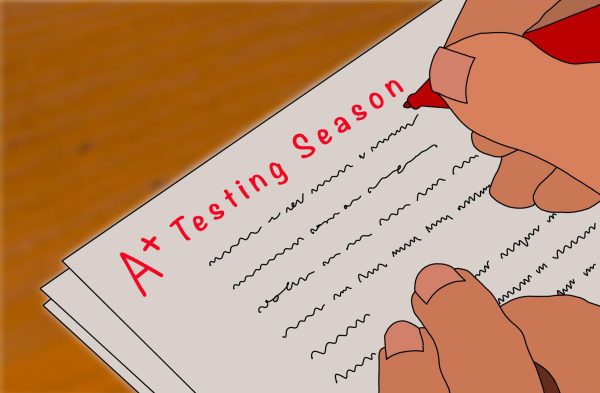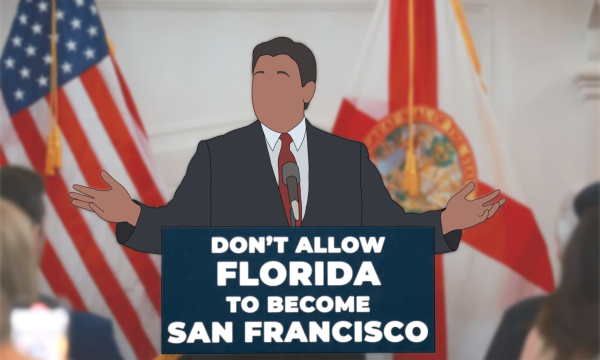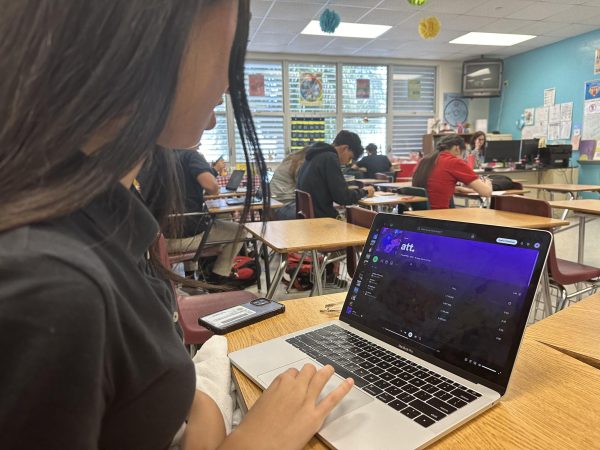Venezuela’s Government Moves Backwards Not Forwards
For 18 years Venezuela has found itself under the control of the United Socialist Party, once led by Hugo Chavez and now by Nicolas Maduro. Clashes between Chavistas and the opposition have been long running and even violent and are currently at their worst. Members of the opposition have taken to protesting this government, which has destroyed the once rich Venezuelan economy and any trace of democracy demanding elections.
In the past month, under Maduro, an assembly to rewrite the constitution was elected, much to the opposition’s dismay. Not only will this further the socialist party’s reach, but it also gives a false idea of democracy, because in reality all 545 seats are occupied by politicians on Maduro’s side. To make matters worse, the Supreme Court dissolved the National Assembly, giving itself all legislative power. In this coup from within the government itself, the little representation held by the opposition was destroyed and the separation of powers was compromised, putting Maduro one step closer to redirecting all power towards the executive branch.
“Obviously it’s an unfortunate situation for the citizens; I think it’s reflective of the lack of international attention as far as foreign policy is concerned towards all of South America,” said freshman Louis LaFontisee.
Supporters of the United Socialist Party of Venezuela claim that under the party the economy has flourished, millions have been brought out of poverty and the nation’s ample supply of oil has been used to benefit the people. They claim that the banning of protests and free speech is just on the grounds that it “disturbs the holding and functioning of the electoral process.”
“What’s going on in Venezuela is disappointing and inhumane, but not surprising. Things in this country have been getting worse for years, and I think this is the climax. This is what happens when a weak government decides it wants more power. Presidents become dictators, democracies become autocracies, and protests become killing fields,” said sophomore Alexander Sutton.

Trusting a party and its decisions so blindly bring nothing but conformity in a system where people are being stripped of basic rights and the government is becoming more powerful. With unsustainable oil production and plummeting imports, Venezuela has less than 10 billion dollars in federal reserves, according to reports by the Central Bank of Venezuela. A country where inflation is insanely extreme should not be claiming to be economically well when its citizens are unable to eat or have access to medicine. Since 2013, Venezuela’s GDP has gone down by a significant 35%; during the Great Depression, the GDP declined by 28%. According to the World Economic Forum, the median wage for workers also decreased by 75%.
Despite blows to their morale, the opposition continues to speak out. Their dissidence will hopefully not be in vain and will bring about changes in the future of Venezuela. The corruption and oppression in this nation may one day end, giving way to democracy and individual freedoms to flourish under new leadership.
Your donation will support the student journalists of Coral Gables Senior High School. Your contribution will help us cover our annual website hosting costs.

Ana Capiro is a senior in the International Baccalaureate (IB) program, and can't wait to start her third year in CavsConnect as the site's Spanish, Student...















